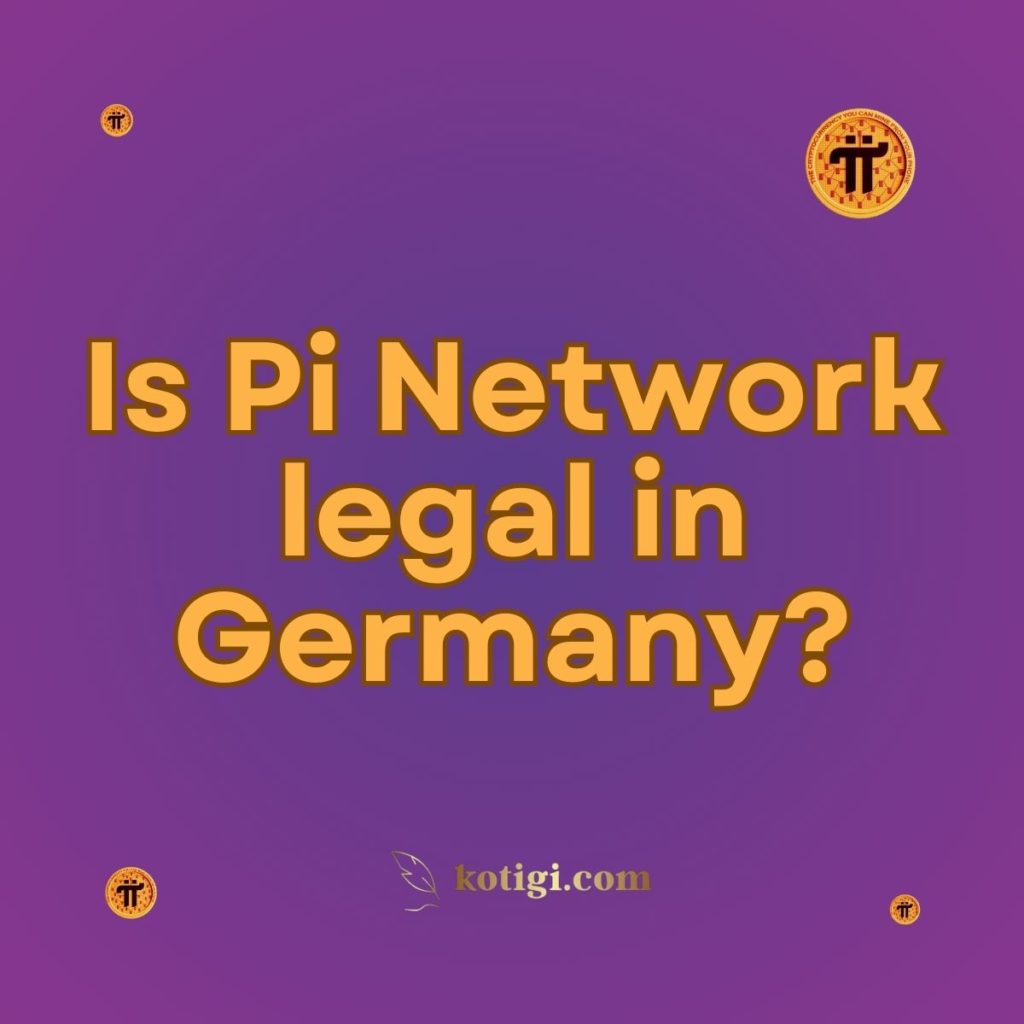
Is Pi Network legal in Germany?
The legal status of Pi Network in Germany is influenced by the country’s strict regulatory framework for cryptocurrencies and digital assets. Here’s an overview of how Pi Network operates within the legal landscape in Germany:
1. Cryptocurrency Regulation in Germany
1.1. General Legality:
Cryptocurrencies, including Pi Network, are legal in Germany. The country is known for having a well-established regulatory framework for digital assets, making it one of the more regulated environments for cryptocurrencies in Europe. However, the use and trading of cryptocurrencies are subject to specific regulations.
1.2. Regulatory Bodies:
The primary regulatory body overseeing cryptocurrency activities in Germany is the Federal Financial Supervisory Authority (BaFin). BaFin regulates financial markets in Germany, including activities involving cryptocurrencies and digital assets.
2. BaFin’s Position on Cryptocurrencies
2.1. BaFin’s Regulatory Approach:
BaFin considers cryptocurrencies as financial instruments under the German Banking Act (Kreditwesengesetz, KWG). This means that businesses dealing with cryptocurrencies, such as exchanges or those offering Initial Coin Offerings (ICOs), require authorization from BaFin. However, mining and holding cryptocurrencies like Pi Network do not require BaFin’s authorization.
2.2. Impact on Pi Network:
Since Pi Network is primarily focused on mining and has not yet entered the phase of active trading on exchanges, it currently does not fall under BaFin’s strict regulatory requirements. However, if Pi Network begins to facilitate exchanges, trading, or other financial services related to Pi coins, it may need to comply with BaFin’s regulations, including obtaining the necessary licenses.
3. Securities Regulation
3.1. Classification as a Financial Instrument:
If Pi Network’s Pi coins are offered in a manner similar to securities, such as through an ICO or similar offering, they could be classified as financial instruments under BaFin’s jurisdiction. This would require Pi Network to adhere to German securities laws, including registration, disclosure, and investor protection requirements.
3.2. Potential Regulatory Oversight:
Currently, Pi Network’s operations in Germany are primarily centered on the mining of Pi coins, which does not trigger securities regulation. However, if Pi Network were to expand its services, BaFin could impose additional regulatory requirements.
4. Anti-Money Laundering (AML) and Know Your Customer (KYC) Requirements
4.1. Compliance with AML/KYC Regulations:
Germany has rigorous AML and KYC regulations aimed at preventing money laundering and ensuring financial transparency. If Pi Network facilitates transactions involving Pi coins in Germany, it would need to implement strict AML/KYC procedures to comply with these regulations.
4.2. Monitoring and Reporting Obligations:
If Pi Network were to engage in activities that involve financial transactions or exchange services in Germany, it could be required to report suspicious activities and maintain detailed records of transactions in compliance with German AML laws.
5. Consumer Protection and Legal Risks
5.1. Consumer Protection Laws:
Germany has strong consumer protection laws that apply to all businesses, including those in the cryptocurrency space. Pi Network must ensure that it operates transparently and provides clear, accurate information to users to avoid legal challenges related to consumer rights.
5.2. Legal Risks and Uncertainty:
Although Pi Network is currently legal in Germany, the evolving nature of cryptocurrency regulation means that it could face legal risks in the future. These risks include potential changes in the regulatory framework that could impose additional requirements or restrictions on Pi Network’s operations.
6. Future Regulatory Developments
6.1. Potential for Future Regulation:
Germany’s approach to cryptocurrency regulation is comprehensive and continues to evolve. Future regulations could introduce new requirements for cryptocurrencies like Pi Network. Pi Network must stay informed about these developments and be prepared to adapt its operations to remain compliant.
6.2. Legal Compliance Strategy:
To operate legally in Germany, Pi Network should develop a robust compliance strategy that aligns with current and potential future regulations. This includes understanding the implications of BaFin’s guidelines, ensuring adherence to AML/KYC requirements, and maintaining transparency with users.
Conclusion
Pi Network is currently legal in Germany, operating within a well-regulated environment for cryptocurrencies. While mining and holding Pi coins do not require BaFin’s authorization, any expansion into financial services, trading, or other regulated activities could bring Pi Network under BaFin’s regulatory oversight. Compliance with German regulations, particularly in areas like AML/KYC and consumer protection, is crucial for Pi Network’s continued legal operation in the country. As Germany’s regulatory landscape evolves, Pi Network must remain vigilant and adapt to any new legal requirements to ensure its ongoing legality and success in Germany.




